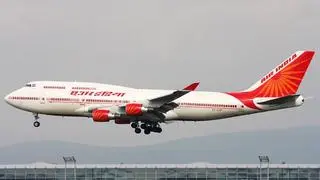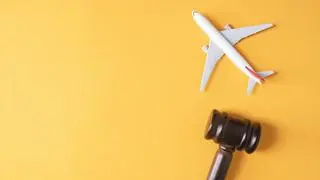Who says young people from smaller towns can’t make it big in the field that interests them while also learning and gaining diverse experience on the way? Certainly not Ashwani Khanna, Managing Director, KSU Aviation Private Ltd.
Growing up in Indore, Khanna knew that he wanted to be associated with the engineering side of things so he got a degree in aeronautical engineering, specialising on aircraft engines. Today, he is involved in a project that uses the latest technology to save both the environment and money at the busiest airport in the country, Delhi.
KSU is operating taxibots (or taxiing robots) since October 2018. A taxibot is a semi-automatic tow truck that helps push the aircraft to a point short of the runway where it can start its engines for take-off. This process helps save the environment as, on average, a Boeing 737 or Airbus 320 aircraft takes about 11 to 13 minutes to taxi when it is likely to burn over 200 litres of fuel. Thus, using a taxibot translates into a huge saving for the environment.
Says Khanna, “Taxibot is the only alternate aircraft taxiing solution which is certified in the world.” Khanna has also got Airbus to agree on a process to allow Airbus carriers in India to start taxiboting with passengers.
Khanna’s journey, from Indore where his father worked with Eicher Motors and his mother was a school teacher, to working with the latest technology, has been one of taking small steps and picking up related, though different, experiences along the way.
Khanna started his career with HAL Bengaluru as a trainee engineer before moving to Mumbai to work with Air Works, the country’s first Maintenance, Repair and Overhaul facility. Here, Khanna realised that the company’s work had more to do with maintaining engines while as an engineer he had been designing them. He was happy to learn how to maintain engines as well.
Special effects in films!
A holiday in Indore in 1991-92 led to another change in Khanna’s work profile. He found employment in a privately owned flying club as a technical instructor, teaching would-be pilots ground and technical aspects of flying. Khanna taught about 300 pilots. But he was restless so he decided to scout around for old aircraft engines which he could fix. “I was able to sell two or three engines to people from the Mumbai film industry. They used them to create high winds for scenes in their films,” he laughs.
Khanna next moved to Damania Airways which was looking for Traffic Assistants. Though overqualified, Khanna took up the job as this was one aspect of aviation he knew nothing about. The job involved issuing tickets which was then done manually.
Khanna was intrigued because a person was a regular on the Mumbai-Indore-Mumbai flight. His job was preparing the weight and balance sheet for the airline, without which the Damania aircraft could not take off.
“One day I told him I wanted to learn what he was doing. But he laughed it off,” recalls Khanna. Khanna was persistent and eventually the Mumbaikar gave in.
Much to the ‘expert’s’ surprise Khanna prepared a perfect weight and balance chart. The expert decided that Khanna could do the job but there was one catch — only certified people were employed to do it.
Khanna was approached by Blue Dart which wanted him to not only make a weight and balance manual for the two Boeing 737 it had acquired from Indian Airlines but also get them approved by DGCA.
Khanna took up the project and learnt how to negotiate a good deal. He agreed to make the manual for ₹1.5 lakh but he wanted half the money upfront. Blue Dart initially did not agree to his demand but later relented.
But there was a hitch. Only certified people could give the final certificate and Khanna did not have that formal degree. He shared the money with his senior who had the certificate and then decided to get himself certified.
Eventually Khanna joined Jet Airways where he also completed his MBA. He also did a course at the Indian Institute of Quality Management in Jaipur where he was trained as a lead auditor for ISO 9000 certification.
Now, apart from being an engineer and an MBA, he was also a certified lead auditor for ISO 9000 for quality management systems.
Khanna’s last stop was a stint at Delhi airport where he also completed his PhD in aviation management, specialising in evaluating alternate aircraft taxiing solutions.
This paved the way for the taxibot project. And the rest is perhaps history in the making.







Comments
Comments have to be in English, and in full sentences. They cannot be abusive or personal. Please abide by our community guidelines for posting your comments.
We have migrated to a new commenting platform. If you are already a registered user of TheHindu Businessline and logged in, you may continue to engage with our articles. If you do not have an account please register and login to post comments. Users can access their older comments by logging into their accounts on Vuukle.